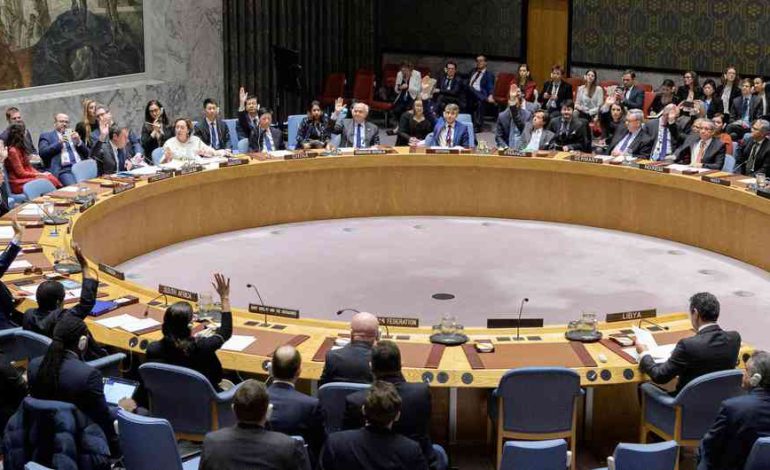What Kenya stands to gain by winning UNSC seat

On Thursday, Kenya won a non-permanent seat at the United Nations Security Council (UNSC) after beating Djibouti in the second round of voting.
In the first round, the two countries didn’t garner enough votes to fill up the UNSC seat. This forced the UNSC members to go for a second round of voting on Thursday.
Kenya scored 129 votes beating Djibouti which scored 62 votes.
The last time Kenya was part of UN’s most powerful organ was 23 years ago therefore the win means a lot for Kenya.
The privileges Kenya will enjoy
This is what Kenya stands to gain now that it has a non-permanent seat at the UNSC.
Kenya will now have a say when it comes to global peace and security issues. Some of the decisions that Kenya will make are applying economic sanctions and authorising military action against an aggressor.
Kenya will also be part of those who recommend the UN Secretary-General candidates to the General Assembly. It will elect the International Court of Justice judges.
READ ALSO: Scientists hail Dexamethasone as ‘major breakthrough’ in treatment of coronavirus
The country will also get a chance to head the UNSC. According to hillnotes.ca, a research website, the council’s presidency rotates monthly among the 15 member states. So Kenya will get a chance to be the president of the council for one to two months during its two-year term. While in that position, Kenya will get to influence the agendas of the council and also facilitate the council’s meetings. As the council’s president, Kenya will be allowed to organize one or several council events based on its topics of interest.
In addition, the UNSC has more than 20 subsidiary bodies which are mainly reserved for non-permanent members. So Kenya will get to head one or more bodies.
“Most subsidiary bodies consist of either committees established to oversee economic sanctions regimes enacted by council resolutions or working groups focused on thematic issues relevant to the council’s work,” hillnotes.ca explains.
DON’T MISS: The losers and winners in the 2020/2021 Kenyan budget
A chance for Kenya to pursue its agendas
Now that Kenya has the opportunity to participate in the UNSC and influence the outcomes, this is the chance for Kenya to pursue its priorities. While campaigning for the non-permanent seat, President Uhuru Kenyatta had a 10-point agenda.
The agendas were: building bridges, peacekeeping and support operations, regional peace and security and counterterrorism. Other agendas were women peace and security, youth empowerment, humanitarian action, justice, human rights and democracy, and environment and climate change.
MUST-READ: The best gifts for father’s day 2020
Kenya will definitely take this time to deal with the maritime dispute with Somalia. Kenya wants to negotiate on the matter without proceeding to the International Court of Justice.
The country will work with five countries that are permanent members and have veto powers at the UNSC. They include Russia, UK, US, China and France. Kenya will also work closely with 9 other non-permanent members which include India, Mexico, Ireland and Norway.




